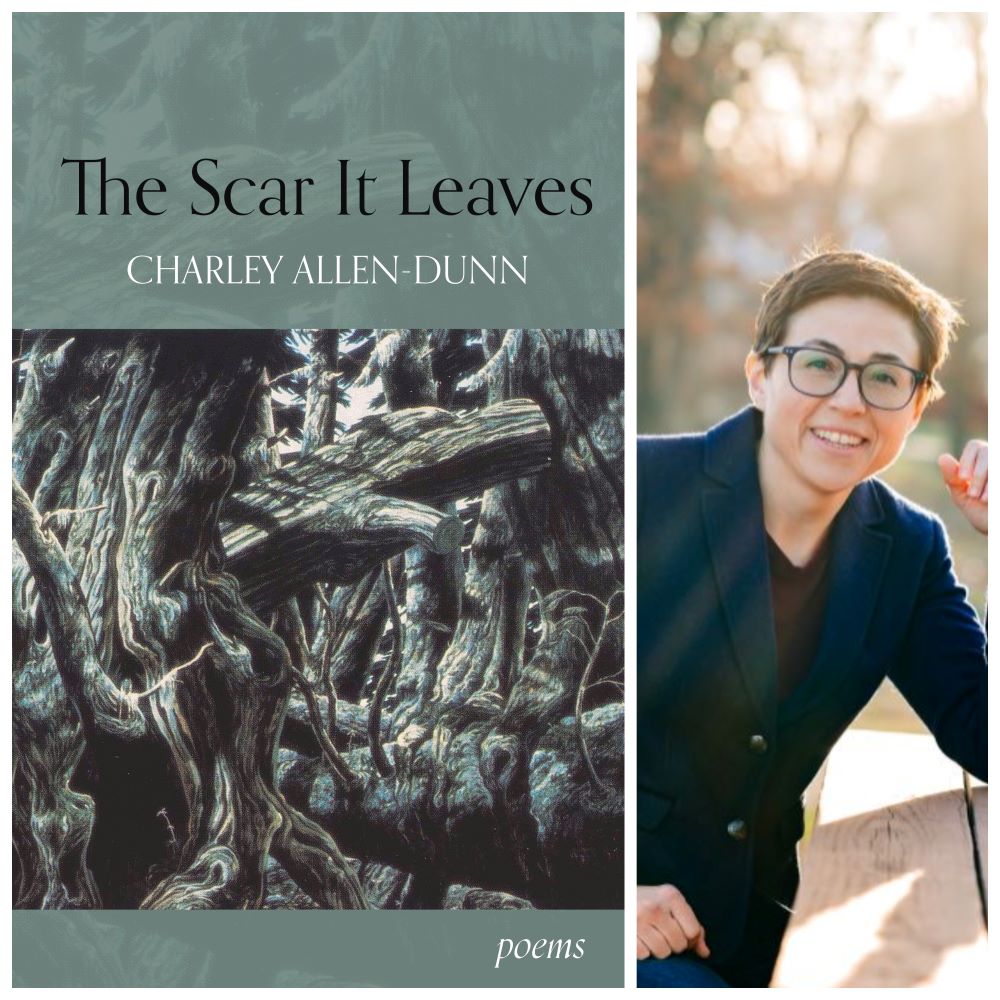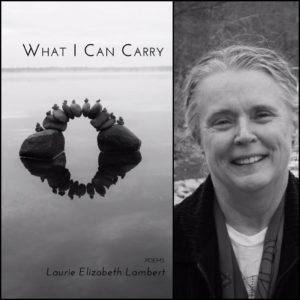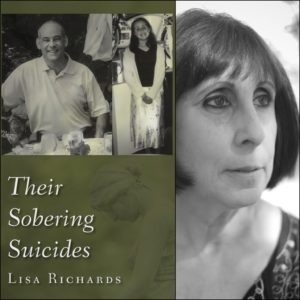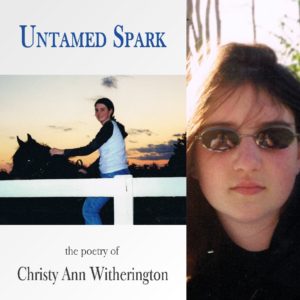Charley Allen-Dunn’s poems evoke the beauty of love worth cherishing, of people worth caring for, of places worth treasuring. Through exquisite descriptions of nature and relationships, The Scar It Leaves explodes to life with the vividness and power of an early spring day to deliver an honest but tender view of the connections that shape a life, and perhaps transcend it.
–Jayne Moore Waldrop, author of Drowned Town and Retracing My Steps
How do we record and carry what changes us? Charley Allen-Dunn’s collection The Scar it Leaves offers us notes from within the yearning to let go and to hold on to memory where “We mark time in befores and afters-“. These poems reflect how one both chooses and can’t control how memories are held in the history of the body. Here we see how often the people closest to us grow unreachable, “As if we are both on separate mountains / searching across the valley to see/…the other still breathes.” There is an ache in the making of a scar; Allen-Dunn holds us in this space where “the family would stand at the edge of the sunlight” and we must come to terms with ourselves for the healing to begin. These poems illustrate that our “Choices right or wrong, / decisions—deliberate and happenstance,” make the path that we must walk every day.
–Amelia Martens, author of The Spoons in the Grass are There to Dig a Moat
In Charley Allen-Dunn’s stunning debut, The Scar it Leaves, every scar has stories to tell. It begins in childhood, blowing up balloons and feeling “powdery rubber turned wet/ between our lips.”
“Over time,” the poet says, “we get better at picking up the pieces.”
The Scar it Leaves chronicles the ways scars are created, and reveals how we unlearn and re-learn the lessons derived from those scars. Nature – “subtle but steady” — is a source of hope and healing. Spring repairs “winter’s sharp knife slashes.”
“The space between here and there” clears the way to empathy, to listening. “Never stop saying her name,” is a plea that gives hope when others carry on the memory of lost loved ones.
Grief leaves its imprint and slows us down. “Don’t you wish you knew these things when you were six instead of now?”
The poet bridges the impossible chasm between then and now, before and after, with the reminder that “there’s a poem in this place” that “makes you want to reach out your hand to share it…”
–Constance Alexander, author of The Way Home






Reviews
There are no reviews yet.